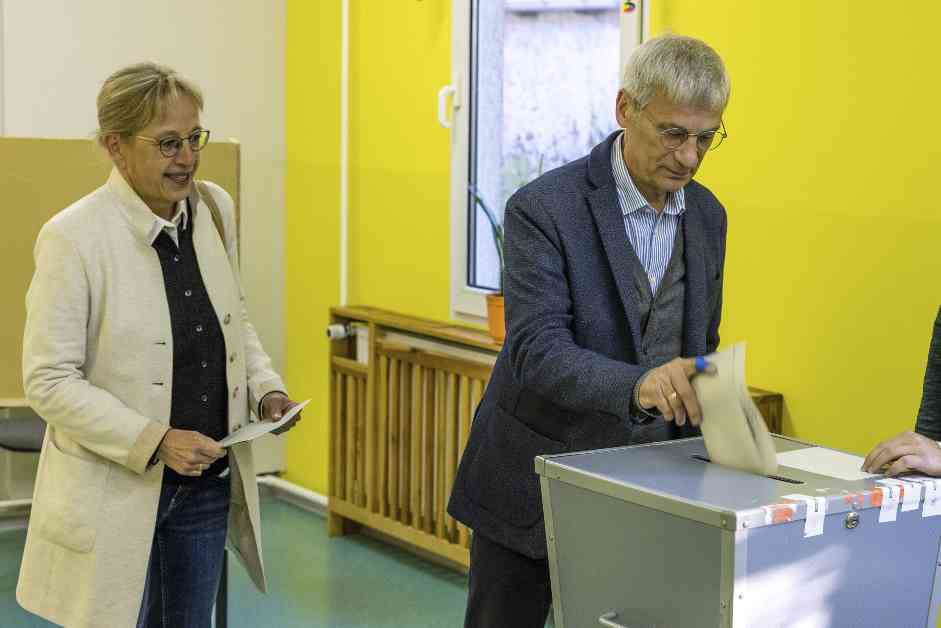An exit poll released after voting ended in a state election in Brandenburg, Germany on Sunday showed the Social Democrats with a slight edge over a growing right-wing party. The voting took place three weeks after the party made gains in two other states in eastern Germany.
The exit poll by Infratest dimap for public broadcaster ARD projected that the Social Democrats won 31.1 percent of the votes and the right-wing Alternative for Germany won 29.8 percent. The official results are expected later in the evening.
Around 2.1 million people were registered to vote for a new state parliament in Brandenburg, the state that surrounds the German capital, Berlin. Sunday’s election was being watched closely for signs about the country’s political direction.
Polls in recent weeks showed the Alternative for Germany mounting a challenge to the Social Democrats, the party that has governed Brandenburg continuously since German reunification in 1990.
The Social Democrats, the largest party in Chancellor Olaf Scholz’s three-way coalition government, hoped to maintain their stronghold in the face of rising support for parties on the extreme right and left.
A loss by the Social Democrats in Brandenburg would be seen as a bad omen for Mr. Scholz, a year before a federal election that is due to be held on September 28, 2025. Mr. Scholz lives in Potsdam, the capital of Brandenburg, and German political observers believe the chancellor’s political future will be shaped by the results of Sunday’s vote.
The fate of the Brandenburg governor, Dietmar Woidke, was also hanging in the balance. He made it his goal for his Social Democrats to beat Alternative for Germany, and vowed to resign should the far right win.
The Alternative for Germany won the most votes in the state of Thuringia and also did well in Saxony in elections held on September 1. A new party founded by a prominent leftist also made a strong impact, while the parties in Mr. Scholz’s unpopular national government obtained extremely weak results.
That was the first time the far right won an election in Germany since World War II, and it dealt a heavy blow to Mr. Scholz’s centrist coalition. It also generated concerns in Germany and abroad about the growing support for the extreme right in the largest European Union country, and a member of NATO.
As polls were nearing the close in the afternoon, a group of anti-AfD protesters gathered near a restaurant where the party’s supporters gathered to learn of the election results.
Their chanting and the sound of whistles sought to disrupt the party. One carried a placard “AfD is so 1933” referencing the year Adolf Hitler and the Nazis came to power.
The right-wing party has gained support amid a growing backlash to large-scale migration to Germany over the past decade and recent extremist attacks. Germany’s economy, once a powerhouse, has been weakening, adding to a general feeling of malaise.
Sunday’s vote followed a heated election campaign centered on the issues of migration, internal security and peace. Both the far right and the new leftist movement, the Sahra Wagenknecht Alliance, or BSW, want to end weapons deliveries to Kyiv as Ukraine tries to defend itself against Russia’s full-scale invasion.
The election results in Brandenburg will have far-reaching implications for the political landscape of Germany and could shape the future direction of the country. The rise of right-wing parties poses a significant challenge to the established political order, and the outcome of this election will be closely watched by politicians and analysts alike.
